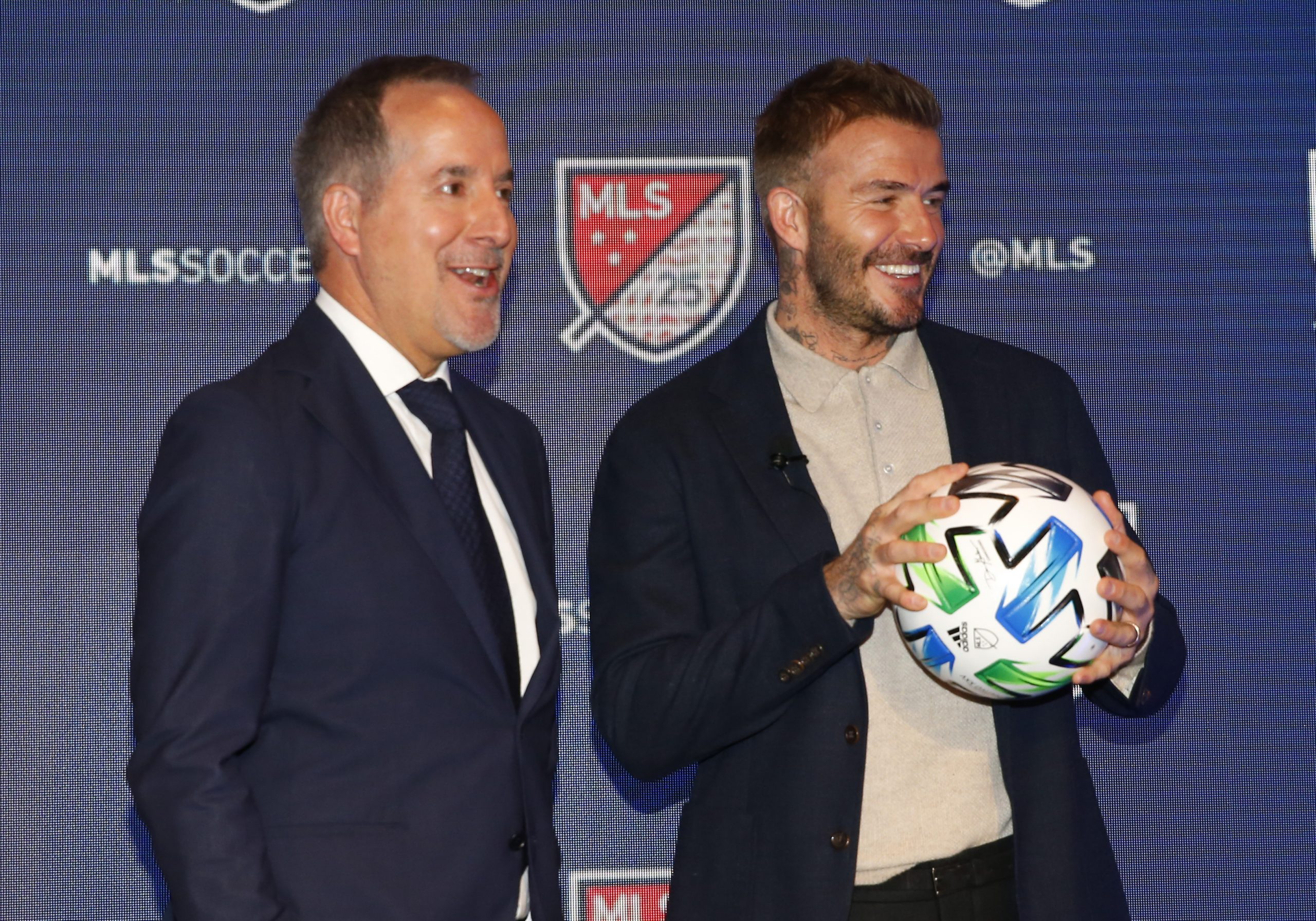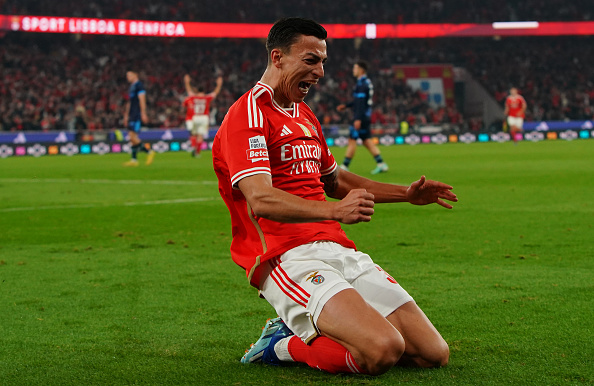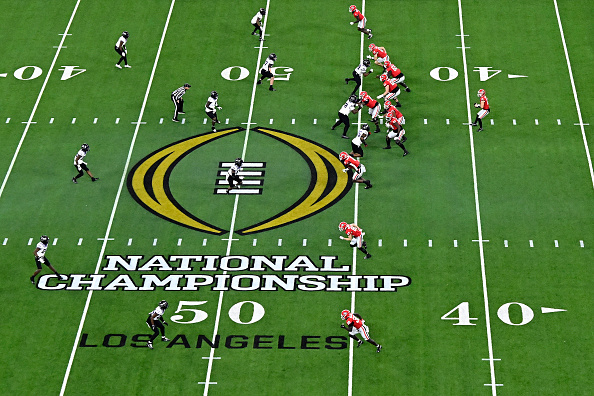The United States has been a notoriously tough market to crack for the biggest sport in the world.
Americans prefer the likes of baseball and football for their more American heritage, and soccer has been left to the rest of the world to establish and grow. However, that seems to be changing. At the end of the day, money talks, and wealthy businesspeople are finally coming around to the potential of promoting soccer in the United States.
It’s been an uphill battle for soccer in the United States, particularly for MLS, but it was given a game-changing moment in 2007. The league installed the Designated Player Rule to provide the 1996-commenced competition more salary leeway than the standard structure North American professional leagues allow. This immediately led to the signing of David Beckham to Los Angeles Galaxy, which was a colossal coup for the growing MLS.
The signing of the former Manchester United and Real Madrid superstar gave the league a chance to build momentum, which it embraced fully. The league commenced bringing in more stars from across the world, validating the existence of the MLS on the global scene or, at the very least, bringing more eyes to the sport in the United States.
Now, 24 years on from its inaugural season, the MLS has developed a great deal and continues to grow. Many discuss its potential to overtake the slumping major sports leagues of the United States, but MLS commissioner Don Garber has been clear that he evaluates growth by comparison to other soccer leagues around the world, as opposed to other U.S. sports leagues.
However, if Garber achieves his goals of meeting or exceeding the standards set in other more established elite-tier soccer leagues, the MLS will naturally move up the popularity standings on native soil. Based on what’s been seen in recent seasons, particularly coming into the 2020 campaign, there are clear signs that the MLS is headed in the right direction to rivaling other U.S. sports.
Expansion
Not only did the arrival of David Beckham bring global attention to the MLS – mainly because he was only 31 at the time – but his attachment to the league has continued to grow it further. As a part of his move back in 2007, Beckham was to be granted his own team.
Since the star right-midfielder came to LA, and before he could cash in on the promise of his own club, the MLS expanded seven times to bring in ten new teams. In 2020, Beckham’s long-awaited Inter Miami CF finally arrived, coming in with Nashville SC. With the league’s team count up to 26, there are already plans to expand with three more franchises over the next two years, with Austin FC joining next year, and St. Louis and Sacramento getting clubs in 2022.
The league is booming, with operators going all-in on capitalizing on its momentum. In 2018, the average attendance of MLS games clocked in at 21,358 to rank eighth in the world, per The Guardian. Home viewership has also been able to grow across the US thanks to the increased availability of the MLS, La Liga, Premier League, Bundesliga, and international competitions on television.
With such an incredible amount of expansion and a verified audience, the MLS has raised its profile to become a brand that Americans and Canadians trust to provide high-quality sporting entertainment. Of course, the money will always play a huge part, as it always does in soccer, so these expansions have had to be boosted by big-name international signings.
Beckham was pivotal, but in the years since, other elite-level veterans playing on the other side of the Atlantic Ocean have been drawn to the league thanks to the Designated Player Rule. The likes of David Villa, Zlatan Ibrahimovic, Wayne Rooney, Thierry Henry, Didier Drogba, Bastian Schweinsteiger, and Frank Lampard have all come over to make a splash and bring attention to the competition.
The standard system of drafting and salary caps is all-but incompatible with the general business of global soccer. In leagues across the rest of the world, a team can spend as much as it earns to buy new talents from anywhere. It encourages teams to cultivate their own players to either be more cost-effective or to bring more money to the club – allowing them to spend on established stars. This is reinforced by soccer fans having an extra tier of devotion reserved for local and home-grown players. So, for the MLS to continue to grow and compete for global stars, it was important for the allowance of the Designated Player Rule to be introduced.
Getting Fans Involved
A team can only be a success if it can cultivate and maintain a fan base. They’re the team’s key source of direct revenue and the metric by which teams receive other lines of revenue – such as advertising. Bringing in big-name players from abroad to encourage fans to tune-in or attend stadiums is a great way to start, but as a league, the experience has to be so much more in the United States.
America is mad for sports, with the entertainment medium forging its own culture of clusters of people who live for their favorite teams. While the league and individual teams will put on fan-centric events regularly, it’s the expanded world of fandom that immerses people in the sport to create long-lasting support.
One such way that this is being achieved for soccer in the United States is through the much-loved platform of fantasy sports. However, knowing that the game is global and that the MLS cannot be classed as the epitome of soccer, fantasy soccer expands the experience a great deal. Legal Betting shows there are many fantasy sports opportunities that focus on the MLS as well as the Premier League, the Champions League and the World Cup.
The Next Step: Sustainability
Bringing in big names for a season or two to contribute high numbers of goals and assists is all well-and-good, but for sustainable success and maintaining a fan base, MLS clubs have to develop local talents and find a way to keep many of them at the club. The MLS Youth Development Initiative, launched in 2006, was a great first step in this direction – with the key being that developed talents could sign a professional contract to avoid the MLS Super Draft.
Having only been in place for 14 years, the system is still relatively young. But as time passes, soccer becomes more popular and more MLS teams arrive with their new development programs, the program will bear more fruit. Of course, the next challenge is keeping a hold of these talents if they prove themselves to be capable of taking on the MLS. To do this, the MLS has to increase the profile of the league on the global scene, offer big-money contracts and boast a high level of competition in the league.
Aside from signing world-class veterans, some MLS clubs have shown ingenuity to up the quality on the field while not necessarily capturing the headlines with huge transfers. A prime example of this is Los Angeles FC’s Carlos Vela, who is one of the top forwards in the MLS. The 31-year-old Mexico native struggled at Arsenal and while out on loan for several years, found himself out of favor at Real Sociedad despite having put together a few solid seasons. LAFC saw a bargain and a player who would appeal to their Mexican fans.
The higher that the standard of soccer in the MLS is, the better the players become as they play alongside stronger opponents and teammates. It’s a gradual process, but with so many new clubs surging into the league and there being no shortage of decent soccer players in the world, the MLS should see its global prestige ramp up significantly over the next decade – moving from a retirement payday league to top-draw competition.
The MLS may not be as big as the NFL, NBA, NHL, or MLB just yet, but it’s certainly making the right moves to be held in higher standing in the United States. In the world of soccer, it’s already gradually gaining notoriety.







